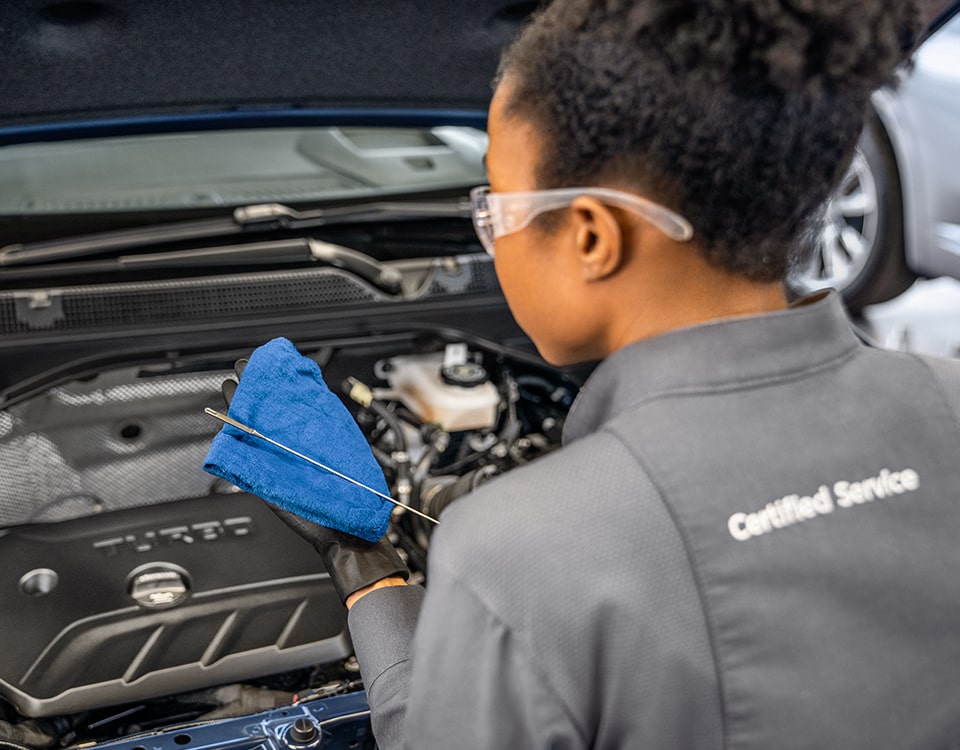Yes, it is necessary to change engine oil in the first service of a new vehicle or bike. Changing the engine oil during the first service is crucial for a brand-new engine as it promotes better performance and longevity.
Neglecting to change the oil during the first service can result in the formation of corrosives and rust, which can damage the engine over time. It is recommended to follow the manufacturer’s guidelines for the first oil change interval, which is usually around 1000-1500 miles or 3 months, whichever comes first.
This small maintenance step can save you from costly engine repairs in the long run and help you enjoy a smooth and trouble-free ride.
Read More: What Happens If You Don’t Change Engine Oil?
The Significance Of The First Oil Change
Changing the engine oil during the first service is crucial for a brand-new engine. During the engine break-in period, it is important to remove any micro bits of metal and prevent corrosion and rust. While some may consider it unnecessary, the higher friction in a new engine and the potential for deposits make the first oil change significant. It’s not just a myth – oil sitting for a long period can develop corrosive acids. Therefore, it is advisable to change the oil during the first service to ensure the longevity and optimal performance of the engine.

Credit: www.reddit.com
What Experts Say
Changing the engine oil during the first service is crucial for a brand-new engine. The oil that sits for a long time can promote corrosion and rust. On a new engine, changing oil on the first service can be quite important. Oil sitting for a long period can develop acids which are corrosive. Most new engines have a break-in period, during which the engine may grind off micro bits of metal as it finds its groove. While it is not necessary, you can consider changing because a new engine would have higher friction and certain deposits.
The Science Behind Engine Oil
The first service of a vehicle plays a crucial role in maintaining its performance and longevity. One important aspect of this service is changing the engine oil. Understanding the science behind engine oil helps us comprehend why this step is necessary.
Engine oil is composed of various additives and base oils that provide lubrication and protection to the engine components. Over time, engine oil undergoes degradation due to high temperatures, contamination, and the breakdown of additives. This degradation affects its ability to lubricate and protect the engine effectively.
Furthermore, metal shavings can be generated during the initial break-in period of a new engine. These shavings can contaminate the engine oil and compromise its performance. Regularly changing the engine oil during the first service helps remove these metal shavings and ensures optimal lubrication and protection for the engine.
Overall, changing the engine oil during the first service is necessary to maintain the engine’s health and performance, allowing it to operate efficiently for an extended period.

Credit: www.youtube.com
Comparing First And Subsequent Oil Changes
When it comes to comparing the first and subsequent oil changes, there are some differences in necessity. The first oil change is often considered more important as it can impact engine performance. With a new engine, there may be a break-in period where the engine does work and may grind off micro bits of metal as it finds its groove. Changing the oil during the first service can help remove any potential contaminants and ensure the engine is running smoothly.
However, it is not necessary to change the engine oil in the second service. Engine oil consumption is normal during driving, so it’s important to regularly check the oil level. The recommended engine oil change interval for normal operating conditions should be followed.
In conclusion, while the first oil change is important for a new engine, subsequent oil changes may not be necessary unless there are specific indications or requirements.
Read More: How Often Should You Change Engine Oil?
User Experiences And Anecdotes
|
It is a common debate among car owners whether it is necessary to change engine oil during the first service or not. Some car manufacturers recommend changing the oil during the first service, while others suggest waiting until the second or third service. There are many success stories of car owners who changed their engine oil during the first service and experienced better engine performance, improved fuel efficiency, and longer engine life. On the other hand, some car owners have reported facing issues after changing the oil during the first service, such as oil leaks and engine noise. It is important to note that changing the engine oil during the first service may not be suitable for all types of engines, and it is always recommended to follow the manufacturer’s guidelines. It is also important to be aware of the warnings and pitfalls associated with changing the engine oil during the first service, such as the risk of voiding the warranty or using the wrong type of oil. |

Credit: www.buick.com
Debunking Common Myths
Changing engine oil during the first service is crucial for a new engine. Oil sitting for a long time can promote corrosion and rust, while a new engine may produce micro bits of metal during the break-in period. Therefore, it is important to debunk the myth that it is not necessary to change the engine oil during the first service.
It is a common myth that changing the engine oil immediately after the first service is necessary. However, this is not true for all cases. It is important to follow the manufacturer’s recommendations for the oil change interval based on the recommended engine specification and normal operating conditions. While it is true that oil sitting for a long period can develop acids, which are corrosive, and a new engine may grind off micro bits of metal during the break-in period, changing the oil immediately after the first service is not always necessary. Instead, it is important to check the engine oil level on a regular basis and change it based on the recommended interval. Ultimately, following the manufacturer’s recommendations and regular maintenance checks can help ensure the longevity and performance of the engine.
Decision Making Guide
Evaluating your vehicle’s needs is crucial when deciding whether to change the engine oil during the first service. While it is not necessary in all cases, there are certain factors to consider. If your vehicle has a break-in period, changing the oil can help remove any metal bits that may have accumulated during the engine’s initial use. Additionally, if the oil has been sitting for a long period, it may develop corrosive acids, making an oil change beneficial. However, it is important to note that not all new engines require an oil change during the first service. Checking the engine oil level regularly and following the recommended maintenance schedule is essential for optimal performance. Ultimately, it is best to consult your vehicle’s manufacturer or a trusted mechanic to determine if an oil change is necessary.
Long-term Benefits And Consequences
Changing engine oil during the first service of a vehicle is crucial for long-term benefits and consequences. It plays a significant role in preserving engine health and ensuring optimal performance. Fresh oil helps lubricate the engine components, reducing friction and preventing wear and tear. It also helps to remove any contaminants and debris that may have accumulated during the break-in period. By maintaining clean oil, you can extend the engine’s lifespan and improve fuel efficiency.
However, it’s important to consider the cost implications. While changing the oil in the first service may incur additional expenses, it is a worthwhile investment in the overall maintenance of the vehicle. Regular oil changes can prevent costly repairs and breakdowns in the future. It’s recommended to follow the manufacturer’s guidelines for oil change intervals and use the recommended engine specification to ensure optimal performance and avoid voiding the warranty.
Frequently Asked Questions
How Important Is The First Oil Change?
Changing the oil on a new engine is important. Oil sitting for a long time can develop corrosive acids. During the engine break-in period, it may produce metal bits. Regular oil changes help maintain engine health.
When Should I Change My First Engine Oil?
It is recommended to change your first engine oil after the break-in period of your new vehicle. This is important because oil sitting for a long time can develop corrosive acids, and a new engine may produce micro bits of metal as it finds its groove.
Changing the oil helps prevent damage and ensures optimal engine performance.
Do We Need To Change Engine Oil In Second Service?
No, engine oil change is not required during the second service. Regularly check the oil level as it can be consumed during driving. The interval for oil change is based on recommended engine specifications.
Does A New Engine Need An Oil Change?
Yes, it is recommended to change the oil on a new engine during the first service. Oil sitting in the engine for a long period can develop corrosive acids, and during the engine break-in period, micro bits of metal may be ground off as the engine finds its groove.
Changing the oil helps to prevent damage and ensure optimal engine performance.
Conclusion
Changing the engine oil during the first service is crucial for the longevity of a new engine. It helps to remove any impurities and promotes better performance. Additionally, it ensures proper lubrication and reduces the risk of corrosion and rust.
Regular oil changes are essential for maintaining the health of the engine.
